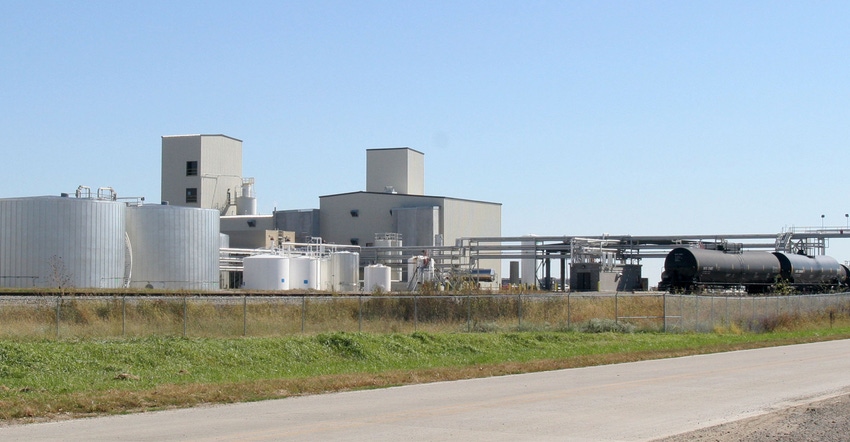February 14, 2017

Biodiesel and ethanol won’t lose any support when Lt. Gov. Kim Reynolds becomes governor of Iowa. As Gov. Terry Branstad has been nominated to be the next U.S. ambassador to China, he is moving out of the governor’s office, and then Reynolds will move in. Iowa’s future governor reassured farmers and biofuel advocates at the recent 2017 Iowa Renewable Fuels Summit that she’s just as passionate about the industry as Branstad.
Reynolds said she will do everything possible to help Iowa’s economy thrive, and renewable energy is a key driver. “I understand how important agriculture is to this state, especially the renewable fuel industry,” Reynolds said.
At the national level, biofuel supporters who spoke at the conference said they are confident President Donald Trump will follow through on his campaign pledge to maintain a strong Renewable Fuels Standard (RFS). Trump voiced support for biodiesel and ethanol as part of his energy independence and job creation platform.
Iowa leads the nation in biodiesel production. The state’s 12 plants produced a record 297 million gallons last year, surpassing 2015’s total by 55 million gallons. Grant Kimberley, Iowa Biodiesel Board executive director, isn’t sure if 2017 will be another record-setter, primarily due to the recent lapse of the federal biodiesel tax credit. But he’s confident Reynolds and Trump will do what they can to help the industry.
Federal biodiesel tax credit
Last year’s 23% increase in Iowa biodiesel production was largely due to policy uncertainty at the federal level, primarily the federal biodiesel tax credit and RFS. Former Missouri Rep. Kenny Hulshof, representing Kit Bond Strategies and the National Biodiesel Board, expects Congress to act on the now-expired federal biodiesel tax credit this year. He urged the 700 summit attendees to contact their congressional representatives and push for its renewal.
Whether lawmakers retroactively reinstate the credit, or change it from a $1-per-gallon blender’s credit to a producer’s credit — as biodiesel producers want — remains to be seen. “I’m bullish on the future of biodiesel, but we have to work on this,” Hulshof said.
State policies encouraging higher biodiesel blends and infrastructure improvements also contributed to Iowa’s record-setting biodiesel production. Under the Branstad-Reynolds administration, Iowa has a biodiesel production tax credit, biodiesel promotion retail tax credit and the Renewable Fuels Infrastructure Program, which provides cost-share funds for equipment such as blender pumps and tanks, so consumers have more options to buy higher biodiesel and ethanol blends.
With Branstad’s departure to China expected soon, he’s received several awards recently for his support of renewable fuels. The Iowa Renewable Fuels Association presented Branstad with a Lifetime Champion of Renewable Fuels Award, along with a “Don’t Mess with the RFS” plaque — a saying he’s been repeating for years as he traveled Iowa, and in visits to Washington, D.C. The National Biodiesel Board also recognized Branstad with the National Energy Leadership Award.
Standing strong for biofuels
“I’m positive Lt. Gov. Reynolds will do every bit as good of a job. We stand strong for renewable fuels,” Branstad said. “As I transition to my new role, I’ll continue to be a tireless and energetic supporter.”
Biodiesel adds an average of 63 cents per bushel to the price of soybeans, and lowers the price of soybean meal for livestock feed $20 to $40 a ton. Soybean oil was the most used feedstock in Iowa biodiesel production at 66% in 2016. According to industry stats, biodiesel and ethanol in Iowa account for 43,000 jobs, $2.3 billion in income and $4.6 billion in gross domestic product.
“It’s an easy decision to support and invest in biofuels,” Reynolds said. Iowa’s fiscal year 2018 proposed state budget contains $3 million for the Renewable Fuels Infrastructure Program. “That funding is helping grow our state’s economy,” she said. “You will hear me say over and over again, if Iowa is going to be truly successful we need to see success in every corner of the state.”
Source: Iowa Soybean Association
You May Also Like




